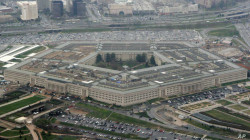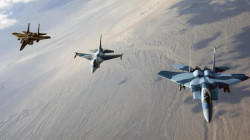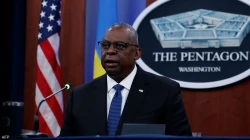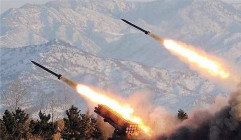Lloyd Austin.. "Architect" of ISIS war and Baghdad's attack at the head of the Pentagon
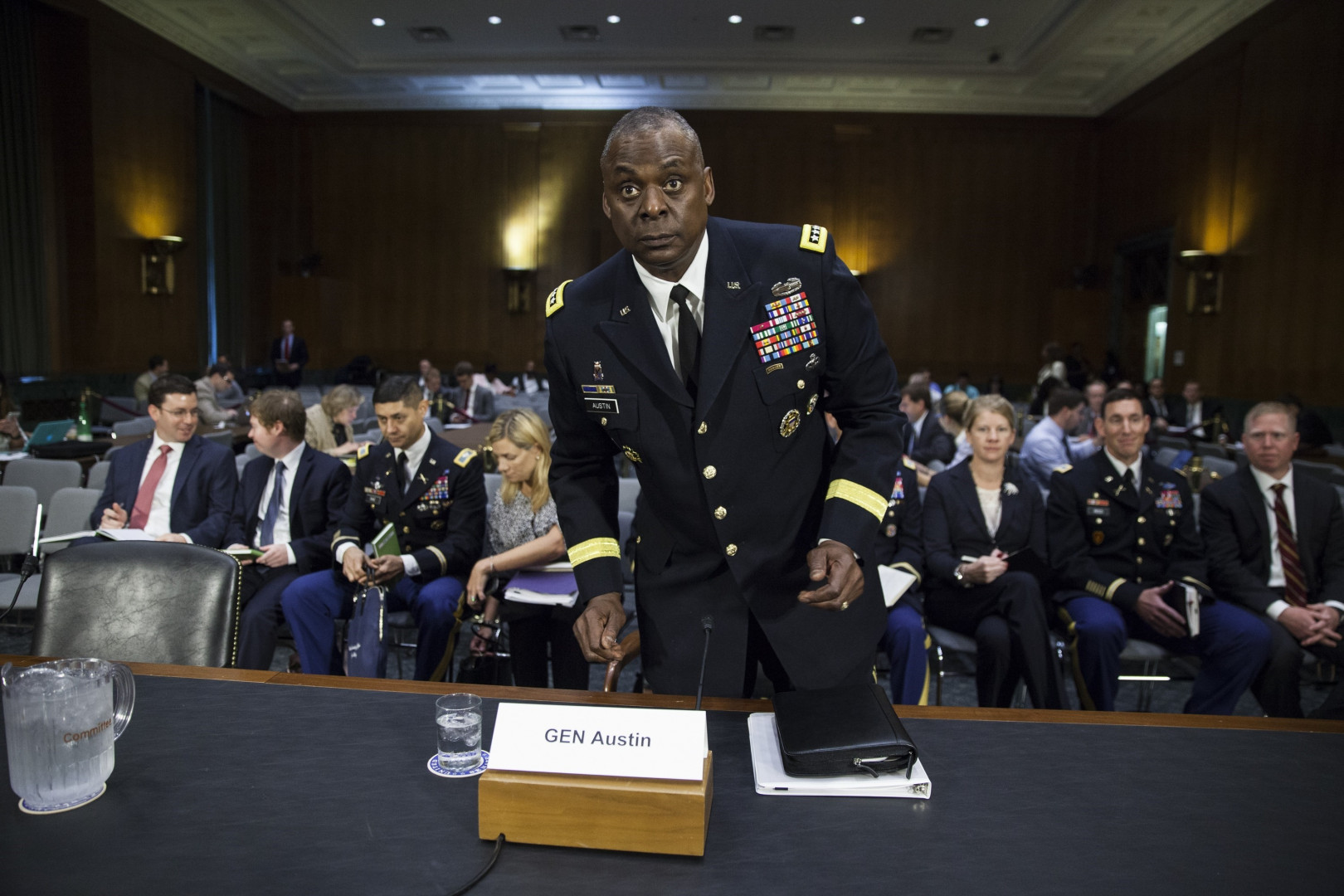
Shafaq News / Lloyd Austin, the "Silent General" or mastermind Baghdad's attack as described by U.S. army generals and the media, has become the first brown-skinned defense secretary in U.S. history.
General Austin's biography has many ups and downs. His name, however, has been making its way up to military hierarchies and delicate roles, despite occasional clashes with war politicians in Washington, and his differences with their military strategies - including former U.S. President Barack Obama and former Senator John McCain.
However, 93 senators supported Austin's confirmation of the post, while two rejected it.
Austin does not like to be under the media's spotlight, and yet his name has been frequent at the helm of the U.S. military command - although his name first emerged in a disaster that could have ended his career in the military.
According to the Foreign Policy magazine, in 1994, Austin was the commander of a battalion stationed at a military base in North Carolina, at which time two military aircrafts collided in the air and crashed over the base; killing and injuring dozens of his soldiers during training.
But Austin's success and Officer Stanley McChrystal, commander of another battalion at the stricken base - who later became director of the Joint Chiefs of Staff and commander of U.S. forces in Afghanistan - in dealing with the tails of the disaster on soldiers at the North Carolina base, opened the way for them to take up senior positions.
On 2003 Iraqi war eve, Austin became deputy commander of the 3rd Division during the war - the force to which the successful ground offensive against Baghdad in April 2003 by the Second Brigade is attributed.
A military commander said, "Austin was the mastermind behind Baghdad's attack. He was pushing, pushing, and pushing".
The high military command's attention was drawn to Austin due to the success of this operation. A senior general presented a report regarding Austin, opening the doors for him to military upgrading, becoming commander of U.S. forces in Iraq, deputy chief of staff, and then commander of central command.
The "silent general" remained calm despite Barack Obama's decision to increase U.S. troops in Afghanistan in 2008 as part of a plan to wrest territory from Taliban. Austin was upset; he supported an alternative plan based on a specific counter-terrorism strategy to strike and defeat Al-Qaeda there. At the time, Vice President- Joe Biden appeared to have supported such a plan and informed Obama.
It seems that he will now regain that vision, as he told senators during his confirmation hearing that he supported withdrawal from Afghanistan, "I would like to see this conflict end with a negotiated settlement. Focusing on future counter-terrorism operations would be helpful".
The new U.S. administration informed Kabul's government, a few days ago, that it would reconsider the agreement Trump reached with it in February 2020 on a full U.S. withdrawal from Afghanistan by May 2021.
Just as he was rewarded for his leading role in coordinating the 2003 attack on Baghdad, Austin also played a key role, at Obama's orders, in arranging an orderly and complete withdrawal of U.S. troops from Iraq in 2011.
In Iraq, where Austin was commander of Central Command (Centcom) in 2014 - when Obama formed the coalition against ISIS - Austin disagreed with the appointment of the U.S. president to retired General, John R. Allen, as the administration's special envoy in the coalition. Austin preferred to appoint an experienced diplomat to the post, as he felt that Allen's appointment would start confusion regarding who leads the coalition against ISIS.
"It is not that he does not have opinions. He just does not like talking to reporters. He is described as the architect of the war against ISIS", one of Austin's colleagues said of him.
However, Austin - just as he was upset about the way the coalition was run against ISIS - was also criticized because, as a central command, he did not expect the emergence of ISIS and its great threat in 2014. Nevertheless, he played a major role in fighting it in coordination with the Iraqi forces, the Peshmerga, and the Syrian Democratic Forces (S.D.F.) in Syria.
He was also criticized for being in the position of central command and did not expect the start of the Saudi war on Yemen in March 2015.
"Austin was angry with the Saudi intervention, because we, the Americans, were supporting the Houthi Movement in their fight against Al-Qaeda at the time", said a senior officer who worked alongside Lloyd Austin.
Austin was so upset that he thought of formally asking the Obama administration to denounce the Saudi war.
Austin also predicted that the Saudis would face great difficulties in their war. He expressed his expectations to senior Pentagon political officials that Saudi Arabia would lose the war in Yemen, and that Washington would have to look for a way to help them. Austin's expectations were met in both cases.
The Yemen war was the first time the chairman of the Senate Committee on Military Affairs, Senator John McCain, criticized the Pentagon for not providing substantial assistance to Saudi Arabia in the war. In his offensive arguments against Austin, McCain argued that Saudi Arabia would not inform Washington of its plans to attack Yemen because Riyadh believed the Americans were biased towards Iran.
Republican Senator McCain seems to have been trying to tarnish the Obama administration's image. Once again, McCain attacked Austin months later, when he accused military leaders that U.S. military intervention against ISIS in Syria was not strong enough. Sources said that Austin sat there receiving criticism, while he could only say that he was following the commander-in-chief of the armed forces' instructions, but he did not, preferring to receive the strikes alone. This elevated his standing in the White House military and political establishments.
In his positions on China, Austin advocated the need for "strategic patience" in dealing with Beijing, contradicting the U.S. trend that Washington should pursue a hard-line policy in dealing with foreign adversaries, particularly China.
It seems that the Chinese file is precisely what distinguishes between the two groups, both pro and opposed to Austin, to be defense minister. However, Austin now meets Biden's view of toughening up with China on issues including its military capabilities and encouraging economic cooperation.
At his confirmation hearing, he was asked about China, he answered, "China is the most difficult and complicated problem".
While Washington wants to deter Beijing militarily, it wants to cooperate with it on the trade front.
Regarding Iran and Biden's possible desire to resume dialogue with it, Austin stated, "Tehran remains a destabilizing factor in the region and it would be dangerous for its regime to have a nuclear weapon".
Austin spent nearly 40 years at the Pentagon and now holds the ministry that has the world's largest military budget - more than 700 billion dollars - and has to deal with the U.S. military presence in Iraq, Afghanistan, Europe, Japan, Korea, and elsewhere.
Lloyd Austin will certainly benefit from the special relationships he forged during his years of frequent service in Iraq with Iraqi and Kurdish officials.
It will remain important to monitor how he will deal with the Iranian file in Iraq after the former Trump administration assassinated Qasem Soleimani and Abu Mahdi Al-Muhandis, leaving major implications for the security situation in the country.
Austin has visited Kurdistan several times and met with its political and military leaders more than once, most recently in 2016.
Austin also pledged that he would put the U.S. military in the service of the battle against the COVİD-19 pandemic, which has claimed more than 400,000 lives so far.
After he was appointed defense minister, Austin tweeted, "Let us get to work".


